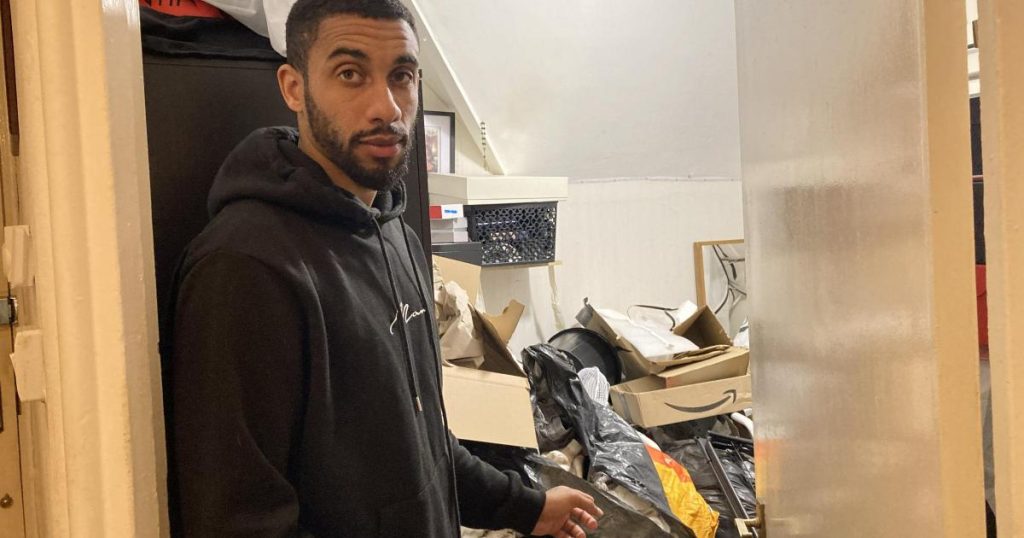Winifred Fredericks, who lived in a three-bedroom council property with her children Reece and Jada in Dartmouth Park, died suddenly in January 2023 aged 57.
Following her death, Camden Council told Reece, 30, and sister Jada, 25, that they needed to downsize from the home they had lived in with her since 2004 and that it would offer them a one-bedroom flat each within sixth months.
But 24 months later the council has not shown them any alternative properties and they have lost more than £2,000 as a result of the ‘bedroom tax’ – in fact a reduction in Housing Benefit or Universal Credit for social housing tenants with spare rooms.
David Cameron’s Conservative government brought in the policy – also known as the ‘under-occupancy penalty’, in 2013 to encourage social housing tenants to move out of homes that were larger than they needed.
Reece, who is on universal credit due to medical needs, says the flat is “a nice three-bedroom flat in a nice area” and many families in overcrowded homes might want it.
But he believes the fault lies with Camden Council for not finding him and his sister alternative homes, and believes the policy should be reversed.
He said: “Bedroom tax should be abolished. I feel like I’m being punished for my mum dying.
“We have no control over this situation. It’s not my fault. Camden has to house us and we are being charged for them taking a long time.”
Reece says he was his mother’s full-time carer for six years before her death following a routine operation.
Under government policy, payment of Universal Credit that would otherwise reduce or stop following bereavement can continue for a short time, but this would not apply in this circumstance as Reece’s mother was the original tenant and the person receiving the Housing Benefit.
As Reece was not the tenant, he did not claim housing costs support so had to make a new UC claim when he took on the tenancy.
He added: “When my mother died I had to pay the funeral and nine nights (an Afro/Caribbean tradition) and paying the bedroom tax was killing me. My older sister helped pay it but she can’t anymore.”
He also described the Catch-22 situation he is in, saying: “Because my account is in credit the council don’t help us, but if we get into arrears they won’t move us.”
Because the flat he lives in has a spare room, he has £104 deducted every month from his benefits. He added: “That money could go to pay electric and gas. Sometimes I don’t put the heating on.
“People don’t understand how people are struggling when it’s not their fault. I’m not the only person in this situation.”
A Camden Council spokesperson said: “We understand the situation has been challenging, and we will redouble our efforts to find a suitable home for the family as quickly as we can.”
The Government says any decisions on removal of the Spare Room Subsidy policy will be taken in the context of its missions, housing priorities, and the fiscal context.
Easements are available to support disabled people and carers, the families of disabled children, foster carers, parents who adopt, parents of service personnel and people who have suffered a bereavement.
A DWP spokesperson said: “We are committed to reviewing Universal Credit so that it makes work pay, as we fix the foundations of our country to spread opportunity and prosperity to all.
“We are also supporting low-income families with our ambitious strategy to drive down poverty in every part of the country, this includes extending the Household Support Fund by £421 million.”



